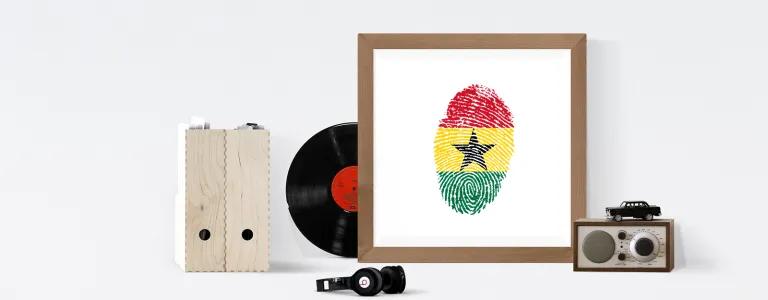
Clueless but curious about my background, NCS grad, Gabrielle
How much do you know about where you (and your family) come from? Could be everything, could be nothing. But that doesn’t change who you are and what you’re made of. NCS grad, Gabrielle, takes a deep dive this (UK) Black History Month into her Ghanaian roots and how taking small steps can open up a big old world of connections.
For me, Ghanaian is just what I am. The word doesn’t hold much sentimental value. I was born and raised in the UAE and moved to the UK when I was seven. As an African that grew up in the Middle East, it’s hard to identify with being Ghanaian. I’ve only visited Ghana twice. I couldn’t tell you much about the politics, the best restaurants, or suggest a city to stay in.
This lack of connection has seen me listening, somewhat awkwardly, to my friend’s rant about how ‘everyone should speak their mother tongue’, and how ‘it’s a disgrace if you can’t.’ I can’t. I don’t join in when my friends start to boast about how well their grandparents treat them, because I rarely see mine.
But, when someone asks where I’m from, I always answer Ghana. I see myself as just a resident in the UK, and a former resident of the UAE. As a black girl, people accept I’m Ghanaian more readily, so that’s the answer I give.
This year, instead of half-heartedly remembering Black History Month and what it stands for, I decided to make an active effort to find out. I attended Africa Utopia at The Southbank Centre; a festival devoted to African art, music, fashion and culture.
Upon arriving, what I saw was pretty impressive. The area was filled with a market selling necklaces, rag dolls, still life paintings, and vibrantly coloured wrap skirts. The people that turned out were dressed in their best African prints, their headwraps secured finely and their braids studded with gold beads.
I watched a documentary installation called ‘Black in the Day’ first. It focused on Black British families, created by public submission, and was voiced by the participants, who shared anecdotes behind the images. Hearing everyone reveal their fondest memories of their parents, grandparents and siblings was enough to make anyone nostalgic. They told stories of wedding days, beach days, and what their parents were like in their youth. You could hear the smiles in their voices and feel the value of the memories. It was profound.
I spent the remainder of the day browsing. I briefly joined an open conversation on what it means to be African and found that being black and being African are different (I did feel a bit dumb afterwards for not seeing the difference). I visited stalls selling handmade jewellery, fussed over which headscarf to buy and admired the jars of shea butter, all while a jazz band set the mood. I was intrigued by everything. But nervous at the same time. I worried vainly about my hair and how it would be perceived by other natural haired women. I admired the prints many people around me were sporting and debated whether I should have worn my own. But despite these thoughts though, I didn’t feel out of place.
I found connections through the smallest things – the fact that the products they sold were the ones I already used at home, or that my earrings were a similar pattern to what they were wearing. It may not have been a huge connection, but the fact we shared similarities meant I wasn’t as clueless as I thought. Being there made me realise how easy it is to learn. And how accessible all of this is living in London. Why hadn’t I just done this earlier?
For anyone else who feels clueless about where they’re from and too bashful to ask; don’t be. I say just go for it. Ask as many questions as you need until you understand. Attend as many events as you want (and bring someone to share them with you!) There’s no shame in admitting you don’t know something. You just don’t have the same experiences as other people, and that’s fine. Because you have your own experiences, and loads of time for more.


